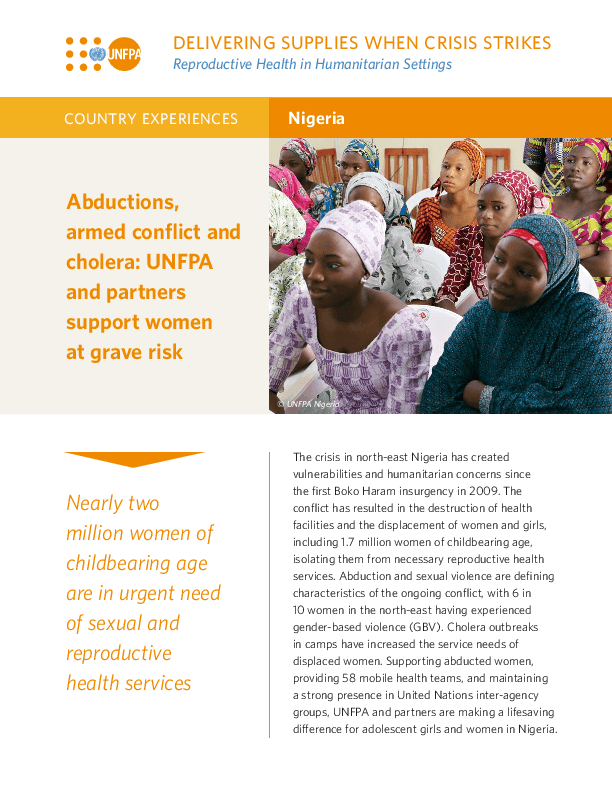
Nigeria: Abductions, armed conflict and cholera: UNFPA and partners support women at grave risk
Resource date: 22 January 2019
Publisher: UNFPA
The crisis in north-east Nigeria has created vulnerabilities and humanitarian concerns since the first Boko Haram insurgency in 2009. The conflict has resulted in the destruction of health facilities and the displacement of women and girls, including 1.7 million women of childbearing age, isolating them from necessary reproductive health services. Abduction and sexual violence are defining characteristics of the ongoing conflict, with 6 in 10 women in the north-east having experienced gender-based violence (GBV). Cholera outbreaks in camps have increased the service needs of displaced women. Supporting abducted women, providing 58 mobile health teams, and maintaining a strong presence in United Nations inter-agency groups, UNFPA and partners are making a lifesaving difference for adolescent girls and women in Nigeria.
Learn more about this series here.